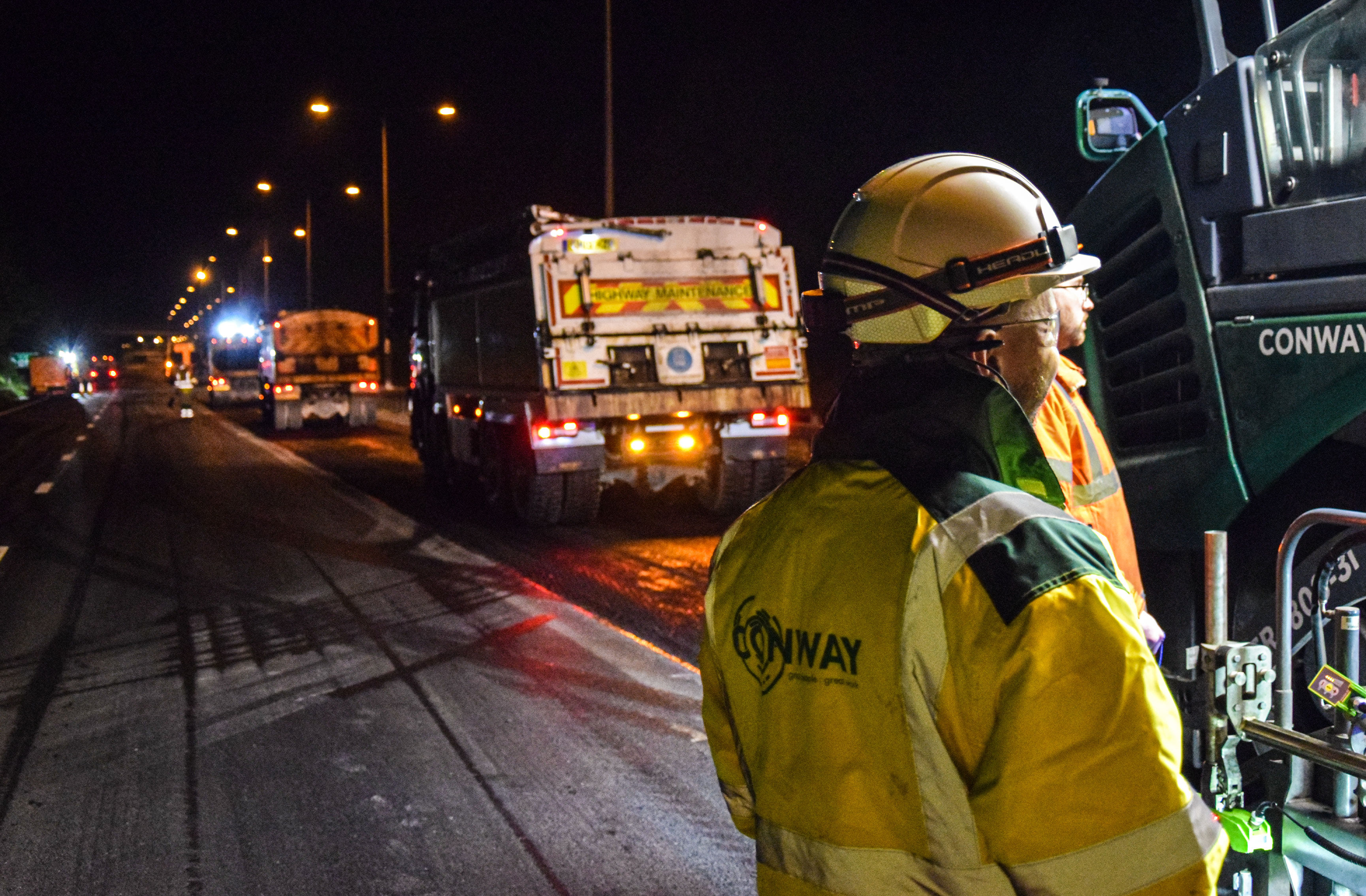Challenges and Solutions
Instead of a two-night scheme laying 700 tonnes of material, the team had to prepare for a nine-week resurfacing programme to plane off and lay 10,000t. There was little time to mobilise, as the work had to be done before the road deteriorated further, and also ahead of Gatwick Airport’s peak summer travel season.
“We had just four weeks to mobilise, which is very quick for a scheme of this size,” said Paul Padfield Surfacing Director, FM Conway.
FM Conway’s self-delivery model pays dividends situations like this, as the business can control materials production and supply, plant and equipment, transport and people.
The asphalt plants at Erith and Heathrow geared up to produce the material, and the recycling plant at Chelsfield found space to store 10,000t of planings ready for use as Recycled Asphalt Product (RAP) on another job.
“It is up to us to manage the availability of all the main aspects of the contract – the lorries, aggregate and bitumen – and we are good at that,” said Simon Dutton Senior Contract Manager, FM Conway.
Outcomes
With an unexpected change, requiring a significantly more complex programme of works, FM Conway displayed the full benefits of its self-delivery model, pivoting to an extensive project to deliver urgent repairs to keep road users safe ahead of another busy summer season for the network.

